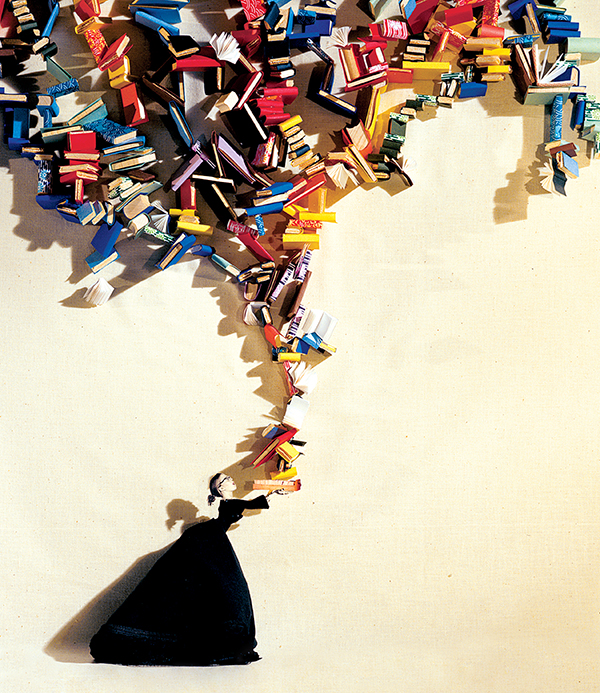 A little over a week ago, an article was published in the Huffington Post that sent the literary world into a tizzy. Michael Rosenbaum's article "What's A Library" questioned what use a brick and mortar building is in today's increasingly digitized world:
A little over a week ago, an article was published in the Huffington Post that sent the literary world into a tizzy. Michael Rosenbaum's article "What's A Library" questioned what use a brick and mortar building is in today's increasingly digitized world:"Frankly, I will not miss the library. Even though I lived right across the street from it for many years, I never went inside. I never sat in its reading room. I never checked out a book. I never explored its stacks to go through old volumes of bound periodicals in some research project. Why would I do that? Why, when I can order up pretty much anything I want online, any time I want. Admittedly, the library is free (thank you Benjamin Franklin for that concept), but the web is also free (at least so far), and instant and much much easier to reference and find stuff than in the stacks (though less romantic, in a literary sense)."
As you can imagine, that elicited an immediate and passionate response from the reading public. Librarian Rita Meade followed up with an article defending the relevance of libraries in the 21st century:
It's really important to remember that just because YOU (general "you") don't need to use something on a daily basis, it does not mean that others don't need to use it. Not to mention the fact that accessing the web ISN'T free, and it's not always easier to "find stuff" on the web than in a library.
As someone who has used libraries all of my life, I can't help but defend them. While Rosenbaum's argument has some validity (the internet does have a lot of information for free), it by no means captures the whole picture of what a library's role in the community is. First off, not everything on the internet is free and internet access is not usually free. There are many underprivileged citizens who simply cannot afford personal computers or internet service. But they can freely access it at their library. Secondly, not everything is on the internet. I enjoy researching my family history, and I can tell you that there are many facts and secrets buried in local libraries that you would never come across on the internet. Finally, the library is a community experience. Many libraries host classes, exhibitions, and other events that bring citizens together in a communal experience. In my mind, libraries are repositories of knowledge, bringing together information from across all mediums (print, digital, and audio/visual) for us to access in one easy and free place. And this report shows that Americans (or at least New Yorkers) are taking advantage of it more than ever.
What do you think? Do libraries still mean something in our culture? Or have we moved beyond them?
Picture credit: "Librarian Shortage" by Pushart Megan Berkheiser
















1 comment:
It is thinking like that which will cause many libraries to close. When I got my Kindle, at first I thought it would be curb my appetite/need for physical books. Later when I realized that physical books might become extinct in our digital age, I stopped sending box loads of books off to the thrift store. Is it dystopian for me to imagine that someday only a few of us will have actual books which we will be trading back and forth from our personal libraries? I wonder...
Post a Comment